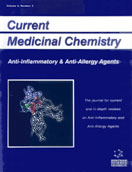Abstract
Mitogen-activated protein kinases (MAPKs) are evolutionary conserved enzymes playing a key role in the transduction of biological signals from cell surface receptors, through the cytoplasm, up to the transcriptional machinery in the nucleus. MAPKs are expressed by alveolar and airway vascular endothelial cells, as well as by bronchial epithelial cells, which actively participate in the inflammatory and immune processes characterizing many lung diseases. We have recently shown, in human pulmonary endothelial cells, that the synthetic glucocorticoid dexamethasone is able to inhibit the phosphorylation-dependent activation of MAPKs induced by oxidative stress and by the pro-inflammatory cytokines interleukin-1β and tumor necrosis factor-α. In primary cultures of human bronchial epithelial cells, our group has also demonstrated that budesonide, a topical corticosteroid widely used as inhaled anti-inflammatory therapy, exerts a potent inhibitory effect on transforming growth factor-β-induced activation of p38, which represents the MAPK subgroup mostly involved in inflammatory processes. Furthermore, other authors have detected an anti-inflammatory action of specific p38 inhibitors in some experimental models of pulmonary inflammation. Therefore, MAPK signalling pathways are emerging as very important, newly recognized targets of anti-inflammatory and immunoregulatory therapies, aimed in particular at controlling the pathogenic events underlying several lung diseases. In this regard, we think that our studies, together with those of other research groups, may contribute to better elucidate the molecular mechanisms responsible for the therapeutic effects of currently available anti-inflammatory agents, as well as to develop novel pharmacological strategies directly targeted at MAPK modulation.
Keywords: mapks, lung inflammation, corticosteroids, mapk inhibitors
 2
2

